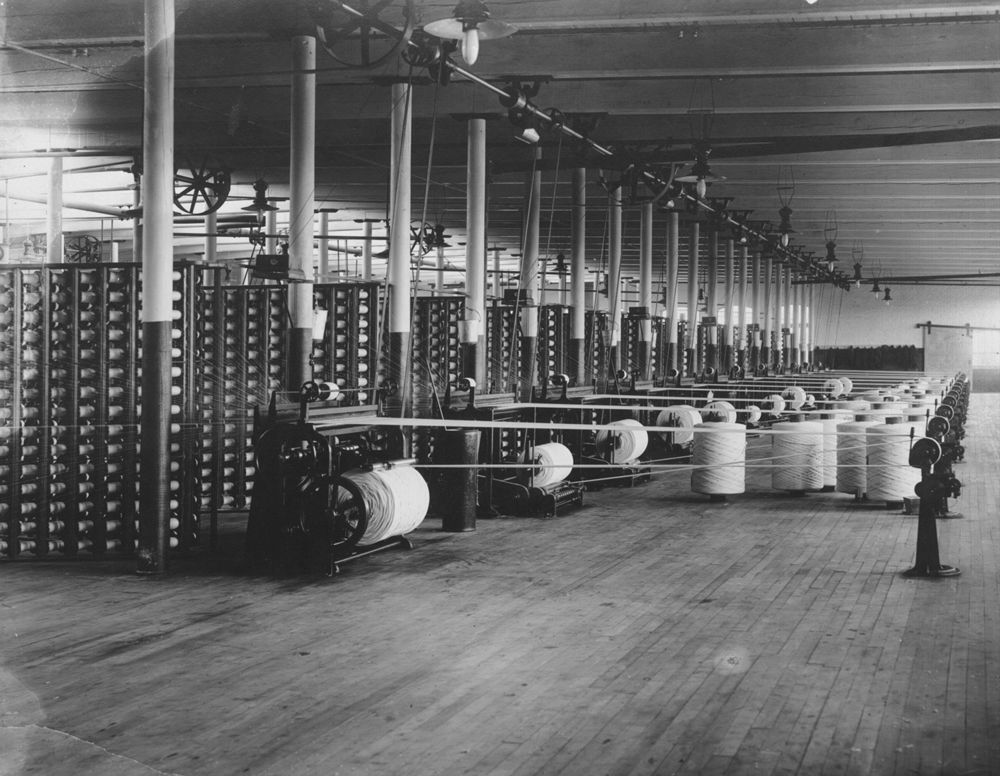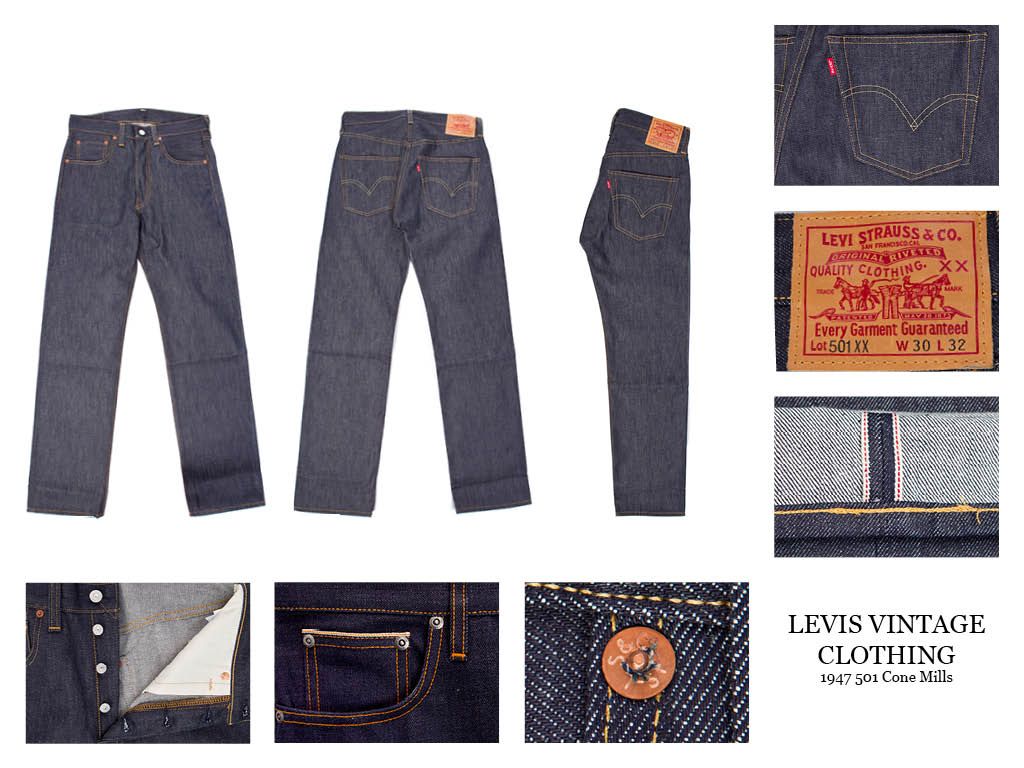
In modern times, it used to be the case that the only way to buy made-in-America Levi’s made from American-made denim was to buy them overseas. All of the Levi’s sold in the US of A were made in places like Mexico and even the current “Made in The USA” 501s are imported (fabric-wise).
For lovers of history and culture, not to mention high quality denim, this was a dismaying state of affairs.
Levi’s Vintage Clothing (LVC) was Levi’s really made in the USA from USA-made denim line, and the salve for people who care about such things as history, culture, and quality. What’s more, the LVC line offered modern versions of classic Levi’s throughout history. Interested in the classic 1947 style? No problem. 1954? ’66? Sure. While the company offered different ‘rinses” and pre-faded and worn-looking versions, the hard-core went for Rigid.
These are your grandfather’s Levi’s and our daughters thought I’d lost my rocker, again, the first time they saw me sitting in the tub reading a book with an indigo ring staining the white enamel. “Shrink-to-Fit” I explained. A number of years ago, the LVC line became available in US. That said, I typically bought mine from overseas because they had better sales.

These genuine Levi’s were made with denim from Cone Mills, founded in 1891 and based in Greensboro, NC., specifically in their White Oak plant. Think Selvedge. (from “Self-edge”). I’ll let Cone Mills explain:
SELVAGE DENIM has been proudly produced by Cone since 1896 and at our White Oak plant since 1905. Our selvage denims are still woven on American Draper X3 fly shuttle looms from the 1940s. Fabrics woven on these vintage looms contain a depth and dimension that is completely unique. The vintage aspect of these looms combined with the fact that these machines sit on the original turn of the century wood floors, creates a rhythm and motion that is uniquely woven into these fabrics. Our loyal denim experts, some of whom have run these same machines for as many as 50 years, are committed to providing well crafted selvage fabrics, which combine our heritage with the latest advances in denim.
In the original shuttle weaving process, a small bobbin of yarn is carried inside a shuttle that travels back and forth across the loom. Since the yarn is not cut after each weft insertion, the tightly bound edge cannot unravel. If used as part of a garment, it will maintain its integrity throughout the life of the garment.

Of course, all this comes at a price and the average pair of new Rigid LVC 501 jeans will run you around $200 and change. That’s a hard sell when you can get a brand new pair of shrink-to-fit Levi 501s for $60 (less when they’re on sale and they’re kinda always on sale).
Now the bad news. As has been widely reported, at least in geek jeans-lover land, Cone Mills shut down the White Oak plant on December 31, 2017. The White Oak plant made their high-quality jeans for other companies but I’m a born and raised Levi’s guy. Why was this slice of real America cut off? Corporate profits of course.

There are still brand new Cone Mills LVC jeans out there for sale but they are slowly disappearing and when they’re gone, they’re gone unless you want to pay even more on the used market. Me, I’m all stocked up for decades to come with a few pairs lying in wait and a few pairs in regular circulation. One thing to note—these jeans last forever (I can’t really say that for sure, but you get my drift).

While Google is your friend for finding the remaining stock of Cone Mills LVC jeans, check Levi’s, Cultizm, and Union Made Goods for starters.
The good news. There are plenty of companies making high-quality Rigid denim jeans and you can find them at places like the appropriately named Self Edge and Okayama Denim.

